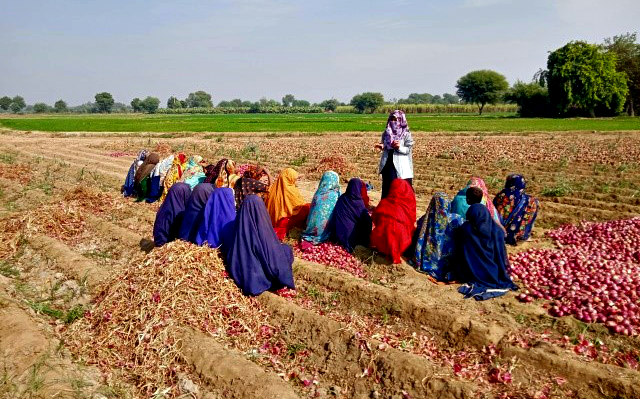Women play a key role in agriculture in ghana that has not always been acknowledged. They are mostly deprived of access to information, knowledge and skills enhancement. This leads to poor technical skills with minimum wage employment, no recognition and no role in family decision-making.
This situation also contributes to a poor agriculture production system as women constitute a major part of the labour force in agriculture. However, with poor skills and minimum technical knowledge, they are not able to contribute as much as they could. Therefore, gender inclusion is vital for value chain development.
These women lack the knowledge of improved onion production technology and this results in no community support, minimum communication with other women and men farmers and no leadership role in the community.
‘Whole family’ approach
Such women need technical support and access to the improved onion production system. This is because they constitute a significant portion of the labour force – playing a key role in sustainable onion production.
Therefore, any attempt to develop the onion value chain in the village will not be successful without their active participation and skills enhancement. The ‘whole family’ was followed to enhance gender engagement in project activities.
In the ‘whole family’ approach, all family members are engaged in information dissemination through a ‘women social mobiliser.’ This person has been proved effective in a rural context.
The female social mobiliser engaged 10 women farmers and 3 labourers. Following the ‘whole family’ approach, the men were sensitized to the needs of women’s participation and to get support from the family.

Leave a Reply